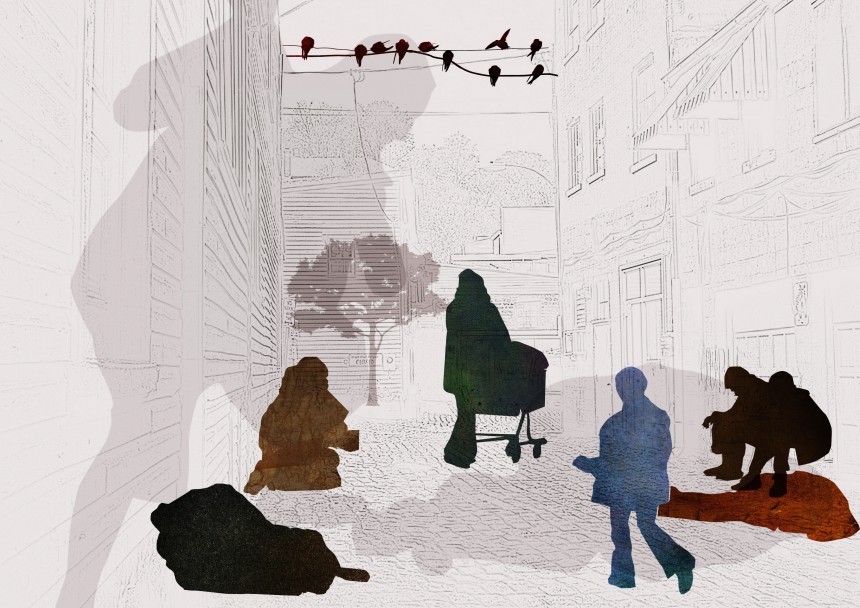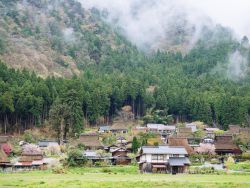
April 16, 2020
Net Cafe Refugees
The coronavirus pandemic and Japan's homeless population
For those living outside of Japan, it may seem rather peculiar to hear of people calling confined internet booths with coin-operated showers and online entertainment home. However, for Japanese residents, it’s common knowledge that many homeless people reside in internet and manga cafes as a form of alternative housing.
Recreational facilities like 24-hour net cafes have become a popular source of accommodation since the inception of the idea ten years ago. Many of its residents include those who are unemployed or underemployed, as well as women seeking refuge from domestic abuse or other familial issues.
In a society where the economic gap has left many without salaried work or a permanent address, the coronavirus has created a new issue in Japan: “actual” homelessness. Since the government shut down entertainment venues in response to the state of emergency, approximately 4,000 net cafe dwellers were forced out of their alternative accommodation and onto the streets of Tokyo.
The Issues
Accustomed to living in cigarette smoke-filled rooms with poor diets and sleep, this already at-risk group of net cafe residents is more susceptible to contracting the coronavirus, and also spreading it. This double-risk poses an immediate threat to Japan’s alarming rise in cases, especially within Tokyo.
Even without health insurance, homeless people are still eligible for social welfare services. Unfortunately, this is often a purposely ignored route due to the self-shame incurred by having to contact their family to prove that they have no means of support.
Another issue reported by the Nikkei Asian Review, is that homeless people are often “workers who earn too much to qualify for welfare services but not enough to afford their own flat.” With approximately one-third of the population categorized as a non-regular worker, the coronavirus has brought about not only the immediate consequences and risks of homelessness during this pandemic, but has highlighted the wider social issues regarding marginalized people in Japan.
Coronavirus: Japan rushes to house thousands of homeless people https://t.co/CtRNDKfYAT
— BBC Asia (@BBCNewsAsia) April 12, 2020
#NetCafeRefugees
The increasingly trending Japanese hashtag #netcaferefugees has become the topic of heated discussion on Twitter. Some believe that these establishments should stay open to house these otherwise homeless nomads, as long as they don’t take in new customers to combat spreading. Others beg to differ, stating that a net cafe with shared facilities could result in a facility-wide spread. Net cafe workers seem to agree, encouraging everyone to leave, because employees are risking themselves and others during each shift.
These businesses that provide for Japan’s most vulnerable now face the critical decision of denying their customers a place of shelter. Although many have implemented shutdowns, others, including the Manboo internet cafe chain, have decided to continue operating despite the government’s request.
Government Response
Government officials have stated that net cafe “refugees” should turn to the Tokyo Challenge Net project, which aims to provide accommodation, employment support and loans to those made homeless due to the virus.
However, the fulfillment criteria is controversial: those already living on welfare cannot apply. There is also no clear indication of whether homelessness has to be directly linked to the coronavirus, or whether previously existing economic issues resulting in homelessness can be accepted. With reports of homeless people being turned away due to confusion among officials, these blurred lines have caused issues.
Tokyo Governor Yuriko Koike has assured that the government has secured over 500 temporary homes to accommodate those vulnerable, but this is far from enough.
Saitama Prefecture follows the example of Tokyo and Kanagawa in providing shelter for homeless who live in the internet cafes, now required to suspend operations under the state of emergency. In Saitama’s case, rooms in a sports center in Ageo city are being prepared. (MP)
— SNA Japan (@ShingetsuNews) April 12, 2020
So what’s going to happen?
As social welfare expert, Inaba Tsuyoshi, states, “Those people may move to other cafes that are still open, or spend the night at 24-hour fast food restaurants or family restaurants. It will make those places crowded.”
Without housing for the net cafe homeless, their search for substitutes could cause a further cluster of outbreaks within communities around Tokyo. The Japanese government will have to do more in order to accommodate for the growing homeless population, as well as contain the spread of the pandemic.
Japanese authorities will also have to focus on long-term solutions for these issues, including employment, as more people are likely to become homeless due to the economic implications of the coronavirus. Professor Masaharu Takenaka of Ryukoku University suggests, “What’s needed of businesses, educational institutions and the government and workers themselves is not just measures for the unemployed, but re-training and re-educating all layers of the workforce, including young employees, so they can actively adapt to the changes.”
How you can help
Help the homeless and vulnerable groups in Japan by supporting these organizations:
- Colabo is providing support for women in need, including those facing domestic violence. They have increased their capacity for emergency shelter and are also providing food and basic necessities.
- Florence supports children and parents affected by the coronavirus, including those with disabilities, single-parent households and those facing economic difficulties.
- Kids Door Fund has set up a project to support and subsidize activity funds for children in need.
- Moyai founded by Inabi Tsuyoshi, is an organization supporting the homeless and underprivileged to help find permanent housing and solutions to their economic difficulties.
- Peace Winds Japan is supplying medical workers and vulnerable groups with masks, providing equipment to hospitals and supporting other essential services.
- Second Harvest Japan is a leading food bank and is dedicated to supplying hot meals and food to organizations supporting those in need.
- The Big Issue has been providing jobs for homeless people, however due to the coronavirus they are unable to work. Support their magazine sales to help finance the homeless.
- DV Soudan+ is an NPO that aims to support domestic abuse victims, such as a hotline, professional consultation by experts, and also can provide shelter and financial assistance. From May 1, support will be provided in 10 different languages.







